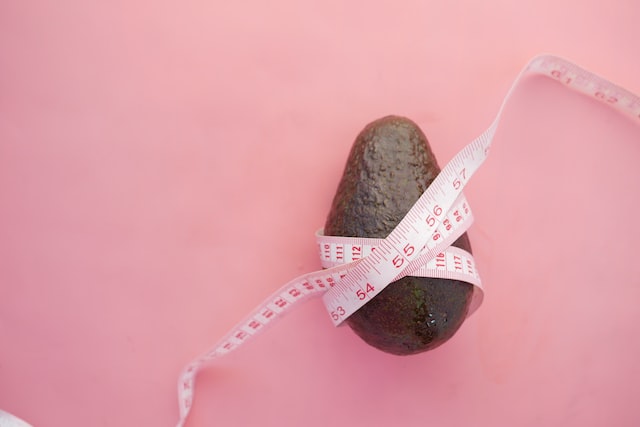It is totally normal to be concerned about your child’s health, but sometimes it can be hard to know what approach to take when addressing it. What should you say? What should you not say? It can all feel a little bit overwhelming because you want to do it the best way possible.
It is important that parents know that purposeful weight loss is not recommended for teenagers. This might seem strange since weight loss is often (incorrectly) touted as the best approach to better health. Teenagers are in an important phase of growth and development and not getting enough calories and nutrients can be really harmful. Instead of helping your teenager lose weight, help them focus on establishing healthy eating and exercise habits that are sustainable for long term health and that make them feel good! If your teenager develops healthy habits now, they will never have to go on a restrictive diet ever.
The best way to help your obese daughter lose weight is to model appropriate behavior. Don’t talk negatively about your own weight and size, fit in fun physical activity as a family, and start making healthy eating changes for the whole family. Keep the fridge/pantry stocked with healthy foods that are easily accessible and fast, encourage healthy stress relief skills, and teach mindful eating habits.
Read on for more information about weight loss for teenagers, dieting, and how to support your teen in their pursuit for improved health.

What is a Healthy Weight for a Teenage Girl?
The term “healthy weight” is relative because weight in and of itself does not determine someone’s health status. It is simply a number on a scale that gives no other information about you, your body composition, your eating habits, medical background, or anything else!
However, Body Mass Index (BMI) is frequently used to classify people into different categories based on their weight and height. This can be a helpful measurement when looking at a large population of people because it is easy, cheap, and quick to do. However, you should never base your individual health status on this one measurement- there are lots of other things to take into consideration!
If you have been told your teenager is overweight or obese, it is likely based on the CDC (Center for Disease Control) growth charts which account for age and BMI. The breakdown of percentiles is shown in the chart below. Again, take this with a grain of salt and know that there are many other things to consider.
Remember too that there can be weight fluctuations throughout your life, especially with changes in hormones. The teenage years can be a time where this is particularly true. Be patient with your body and know that it will go through a lot of changes- try to focus on being grateful for the amazing things that your body can do, even while it is changing and adjusting.
How Can a Teenage Girl Lose Weight?
It is not recommended that teenagers purposefully try to lose weight. Instead, the focus should be on slowing the rate of excess weight gain by establishing healthy habits.
There are a lot of diets, pills, cleanses, and more that “claim” to be helpful for weight loss, but none of these are good options for teenagers (or anyone). Often, the desire for quick weight loss can cause people to make poor health decisions. Sometimes these methods do “work” in terms of decreasing your body weight, but that doesn’t mean they are healthy, safe, or sustainable.
A restrictive diet can be really bad for teenagers during the important years of growth and development! Restricting calories/energy and important nutrients too much may harm a teen in the long run more than help. Developing healthy habits (instead of following a restrictive diet) is a lot more helpful to benefit your teenager long term. Focus on overall health, and not just weight.
You might be wondering why it isn’t recommended for teens to lose weight if they are overweight or obese- wouldn’t weight loss make them healthier? As a parent, it is important to remember that your child’s weight does not necessarily equate to their health status, and losing weight does not automatically make you healthier!
Focus on what actually makes you healthier- eating regularly, eating balanced meals, including lots of fruits and veggies, increasing your intake of whole grains, drinking more water, including more physical activity in your daily schedule, managing your stress levels, getting enough sleep, etc.
As you shift your habits, your body will eventually settle into a weight that is healthy for you. It shouldn’t take a strict diet to maintain that healthy weight- as long as you are keeping up with healthy habits and listening to your body, you won’t have to think too much about the number on the scale.
Do you need help from a Registered Dietitian Nutritionist to help your teenager get to a healthy weight? I have worked with thousands of individuals and I’ve put together my guide of what really works. This is my real, best tips of what really works for teen weight loss. You can get it here: The Right Way to Lose Weight for Teens – Teenage Healthy Weight Plan
It’s worth it to help your teenager! Try it and see. For less than $15 you can help your teenager develop healthy eating habits without going on any hard, restrictive diets. It’s 11- easy to follow steps that will benefit anyone looking to get to a healthy weight and create a healthy relationship with food. I can guarantee you’ll find it helpful. Check it out here: https://www.fuelingteens.com/downloads/lose-weight-for-teens/
What is the Fastest Way for a Teenager to Lose Weight?
When it comes to your body- fast changes are usually not great. If your weight is changing quickly, it often means that your body is having to work overtime because you probably aren’t getting the amount of nutrients that you need.
If you are searching for a quick way to lose weight, it would be worth asking yourself why you have that desire. It is probably not even because of a desire for improved health. There are a lot of external pressures out there to make your body look a certain way and weight a certain amount. These pressures are often what draw teenagers to look for a quick solution and while they think it will make them feel better, it does not fix their relationship with their body image.
Parents should keep an eye out for signs that their teenager is attempting to lose weight quickly. Catching these behaviors early and getting the appropriate help can make a huge difference in your teen’s health.
How Can Parents Help Their Teenagers Lose Weight Without Making Them Feel Bad?
Parents want the best for their kids, but putting too much emphasis on weight can actually do a lot more harm than good. Whether your teen is at a healthy weight, or is overweight or obese- here are some tips for how parents can encourage healthy habits without causing more problems or making their teens feel bad.
- Take the focus off of weight. In fact, don’t even comment on weight and appearance. Even positive comments and compliments can do harm because teenagers can easily make associations between their appearance and their worth.
- Don’t make negative comments about your own weight or the weight and appearance of other people. Even when not directed at them, teenagers pick up on what is said and it can be quickly internalized.
- Don’t single out your teenager and ask them to eat or exercise differently from the rest of the family. Make the pursuit of health a family journey that everyone is a part of. Never make your teen feel like they are of less worth because of their weight.
- Have healthy foods like fruits and vegetables available and ready to grab and go. Many teenagers might actually choose healthier foods when presented with the option but not forced to eat them. Think foods that are easy and fast! Choose fruits and vegetables, nuts, seeds, fruit leather, dried fruit, applesauce pouches, lowfat popcorn, string cheese, jerky, whole wheat crackers, rice cakes, whole wheat cereal, homemade fruit juice/smoothie popsicles, lowfat yogurt cups and tubes, etc.
- Don’t get rid of all the “junk food” in the house. Yep, you heard me right. Restricting foods or making them only “special occasion foods” often results in overeating and obsessively thinking about those foods. Instead, buy a little bit less of those foods, keep healthier foods easily accessible, and encourage your teen to listen to what foods make their body feel good and how much food it needs.
- Find fun activities to do as a family that help get everyone up and moving. That might be going for a family walk, throwing the frisbee around, jumping on the trampoline, walking around a museum, going on a bike ride, etc.
- Encourage good stress relief habits and work with your teen to set up a good bedtime schedule to make sure they are getting the rest that they need. There is more to health than just eating and exercise!
- Talk about all foods in a positive light. Avoid referring to foods as “good” or “bad,” and talk about the benefits of each kind of food- even those “junk foods!” Help your teenager learn to enjoy all foods and recognize that some are more nutrient-dense than others without feeling bad about eating those with less nutritional value.
- Help your teenager recognize their body’s hunger and fullness cues and practice mindful eating. Encourage your family to eat more slowly and talk about how the food tastes, the texture, the aromas, and the appearance. Focusing on your five senses as you eat helps you be more mindful and be able to better hear and respond to hunger and fullness cues.
- Gather your family for meals as much as possible. Keep criticisms and controversial or upsetting topics away from the table to help your teen create positive associations with food.
See also:
- Should I Tell My Teen They Need to Lose Weight? Tips from a Dietitian
- Is It Bad To Diet At Fourteen?
- What is the Best Diet Plan for a 16 Year-Old? From a Dietitian
Summary
While weight loss isn’t recommended for teenagers, that doesn’t mean there isn’t anything you can do to help your children be healthier! Parents will be able to have more productive conversations with their kids and form better relationships as they take the focus off of weight and re-focus more on sustainable healthy habits. If you are feeling the pressure as a parent to always say the right thing, just work on becoming better informed, and then do the best that you can!
You probably won’t say and do everything perfectly, but having a better understanding of how to approach difficult topics like weight will empower you to more confidently encourage healthy habits in your teenagers. You’ve got this!
Related Posts
- What is Overweight for a 13-Year Old?
- The Right Way to Lose Weight for Teens
- What Should I Eat at Night to Lose Weight?
- Should I Tell My Teen They Need to Lose Weight? Tips from a Dietitian
Fueling Teens is a participant in the Amazon Services LLC Associates Program, an affiliate advertising program designed to provide a means for sites to earn advertising fees by advertising and linking to Amazon.com. We also participate in other affiliate programs which compensate us for referring traffic.

